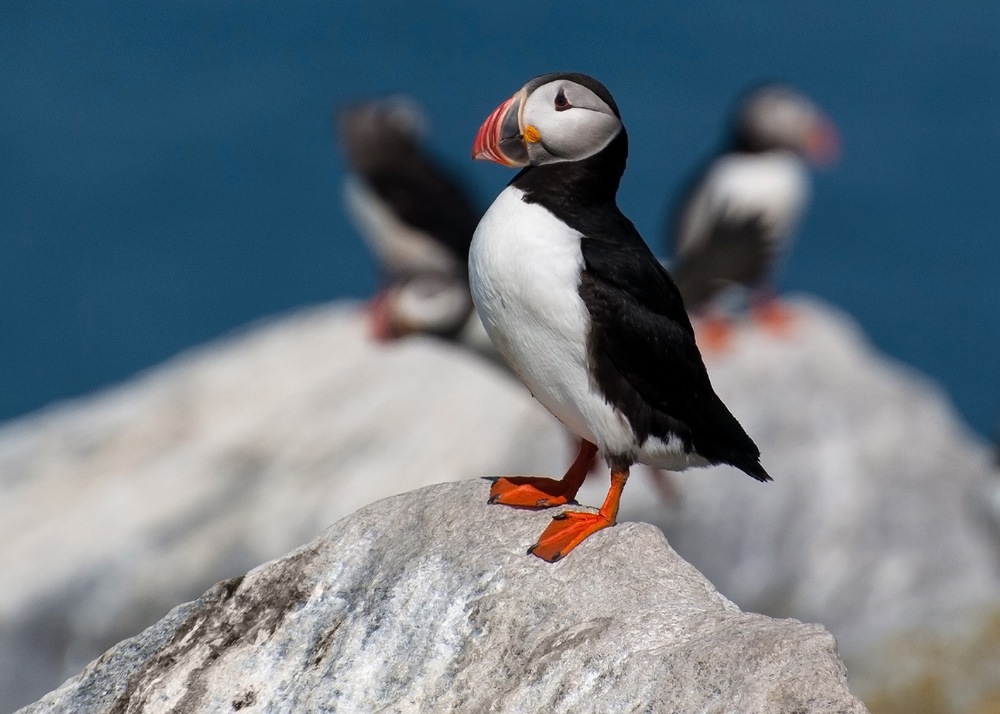Atlantic puffins — sometimes called the clowns of the sea because of their squat bodies and odd waddles — are finding themselves in a particularly unfunny predicament.
Scientists think warming ocean temperatures are driving the puffins’ normal meals of herring away from the coastlines; they’re being replaced with other fish that are too large for puffin fledglings to swallow.
We told you in May that record-breaking Atlantic coastal water temperatures were driving some fish away. And on Friday we quoted Oceana scientist Matthew Huelsenbeck warning that the warming of the oceans is “causing significant changes to marine ecosystems.”
Well, what could be a more dramatic poster child for these impacts than the vision of adorable pufflings starving to death? From the Associated Press:
Steve Kress, director of the National Audubon Society’s seabird restoration program, has worked to restore and maintain the puffin population off the Maine coast for the past 40 years. Puffins spend most of their lives at sea, coming ashore only to breed each spring before returning to the ocean in August. The chicks swim to sea about 40 days after hatching and typically return to the islands after two years.
More than 2,000 of the birds are now in Maine, the vast majority on three islands. But the chick survival rates on the two largest colonies took a dive last summer, possibly because of a lack of herring, their primary food source, Kress said.
On Seal Island, a national wildlife refuge 20 miles offshore that’s home to about 1,000 puffins, only 31 per cent of the laid eggs produced fledglings, down from the five-year average of 77 per cent. Similar numbers were experienced at Matinicus Rock, a nearby island with more than 800 birds.
Instead of feeding their young primarily herring, puffin parents were giving them large numbers of butterfish, a more southerly fish that’s becoming more abundant in the Gulf [of Maine] or perhaps more accessible to seabirds because they’ve moved higher up in the water column. But the chicks ended up starving to death because the butterfish were too big and round for them to swallow, Kress said. Piles of uneaten butterfish were found next to some of the dead birds.
Perhaps the puffins could raid area homes and steal fish knives.




